
Enchanting Girona: The Jewel of Catalonia
Nestled in the heart of Catalonia, Girona is a city that captures the essence of medieval charm and modern vibrancy. With its ancient walls, winding streets, and colorful buildings, Girona is a picturesque destination that feels like stepping back in time. The city's rich history is evident in every corner, from the imposing Girona Cathedral to the ancient Arabic Baths. Girona's old town, known as Barri Vell, is a maze of narrow, cobbled lanes that invite exploration. Here, you can discover hidden courtyards, quaint cafes, and artisan shops. The Onyar River runs through the city, lined with pastel-hued houses that create a stunning reflection in the water. Crossing the river on one of the many historic bridges offers a perfect view of this beautiful cityscape. Food lovers will delight in Girona's culinary scene, which ranges from traditional Catalan fare to Michelin-starred dining. The city is home to the world-renowned El Celler de Can Roca, frequently named one of the best restaurants in the world. Whether you're wandering through its historic streets, savoring local delicacies, or simply soaking in the atmosphere, Girona promises an unforgettable experience.
Local tips in Girona
- Visit the Girona Cathedral early in the morning to avoid crowds and enjoy the serene atmosphere.
- Explore the Jewish Quarter (El Call) for its unique history and beautifully preserved medieval streets.
- Don't miss the colourful houses along the Onyar River, best viewed from the Eiffel Bridge.
- Try local specialties like xuixo, a delicious pastry, and sample the city's vibrant tapas scene.
- Walk along the ancient city walls for panoramic views of Girona and the surrounding countryside.
- Check the local calendar for festivals like Temps de Flors in May, when the city is adorned with stunning flower displays.
Neighbourhoods in Girona
Enchanting Girona: The Jewel of Catalonia
Nestled in the heart of Catalonia, Girona is a city that captures the essence of medieval charm and modern vibrancy. With its ancient walls, winding streets, and colorful buildings, Girona is a picturesque destination that feels like stepping back in time. The city's rich history is evident in every corner, from the imposing Girona Cathedral to the ancient Arabic Baths. Girona's old town, known as Barri Vell, is a maze of narrow, cobbled lanes that invite exploration. Here, you can discover hidden courtyards, quaint cafes, and artisan shops. The Onyar River runs through the city, lined with pastel-hued houses that create a stunning reflection in the water. Crossing the river on one of the many historic bridges offers a perfect view of this beautiful cityscape. Food lovers will delight in Girona's culinary scene, which ranges from traditional Catalan fare to Michelin-starred dining. The city is home to the world-renowned El Celler de Can Roca, frequently named one of the best restaurants in the world. Whether you're wandering through its historic streets, savoring local delicacies, or simply soaking in the atmosphere, Girona promises an unforgettable experience.
When is the best time to go to Girona?
Iconic landmarks you can’t miss
Girona Cathedral
Discover the stunning Girona Cathedral, a masterpiece of Gothic architecture and a significant cultural landmark in the heart of Girona.
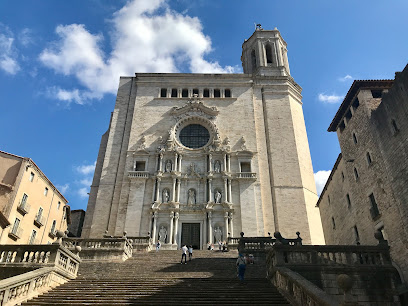
Parc de la Devesa
Discover the lush landscapes of Parc de la Devesa, Girona's largest park, where tranquility meets culture in the heart of the city.
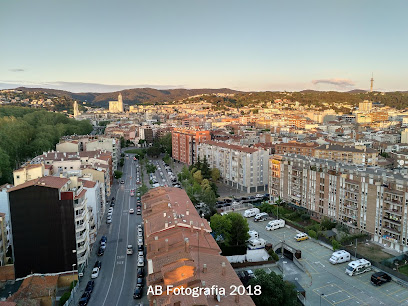
Pont de les Peixateries Velles
Discover the iconic Ponte de les Peixateries Velles in Girona, a stunning bridge that offers breathtaking views and a glimpse into the city's rich history.
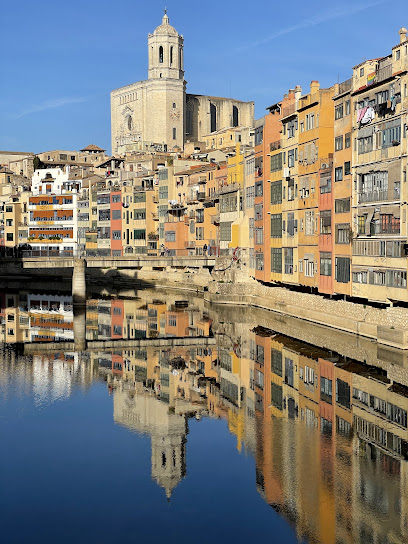
Muralles de Girona
Discover the historic Muralles de Girona, where medieval walls meet breathtaking vistas and rich Catalonian history unfolds.
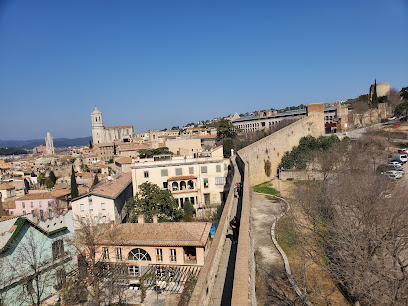
Mercat del Lleó
Explore Mercat del Lleó: Girona's vibrant market offering fresh local produce, artisanal goods, and an authentic taste of Catalan culture.
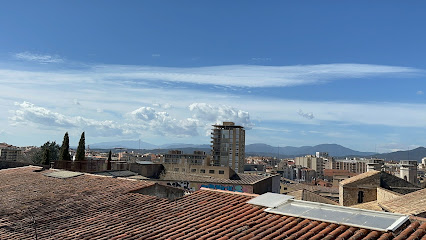
Banys Àrabs
Explore the serene and historical Banys Àrabs, an ancient Arab bathhouse in Girona that offers a unique glimpse into Moorish culture and architecture.
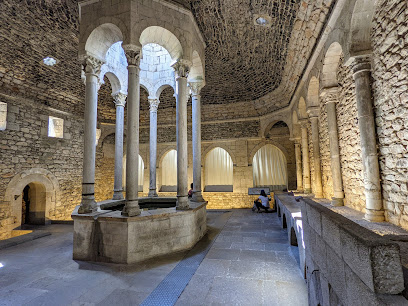
Fira de Girona
Experience the vibrant culture and dynamic events at Fira de Girona, a premier convention center in the heart of Girona, Spain.
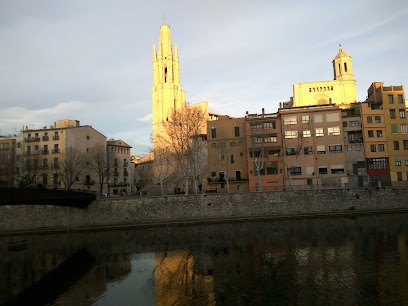
Basílica de Sant Feliu
Explore the stunning Basílica de Sant Feliu in Girona, a Romanesque masterpiece rich in history and artistic treasures, perfect for cultural enthusiasts.

Sant Pere de Galligants
Explore the serene Sant Pere de Galligants, a stunning Romanesque monastery in Girona, showcasing rich history and architectural beauty.
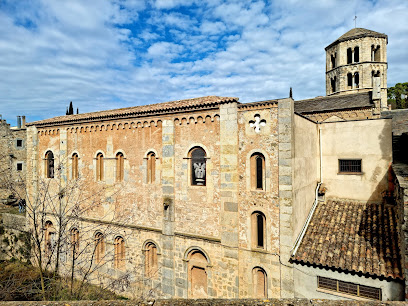
Tourist Information Office
Explore Girona like a local with expert insights and resources from the city's Tourist Information Office, your gateway to Catalonia's hidden gems.
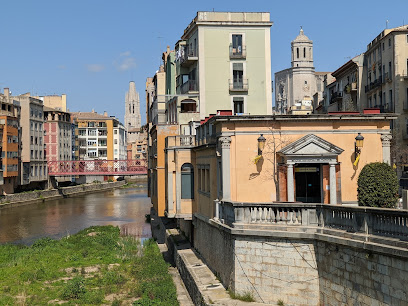
Cases de l'Onyar
Discover the breathtaking beauty and vibrant history of Cases de l'Onyar in Girona, where colorful houses and stunning architecture await.
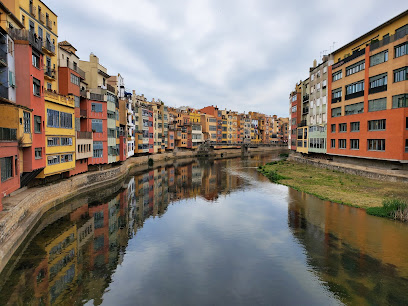
Museu d'Art de Girona
Discover the artistic legacy of Girona at the Museu d'Art de Girona, where centuries of creativity come alive through diverse and captivating exhibits.
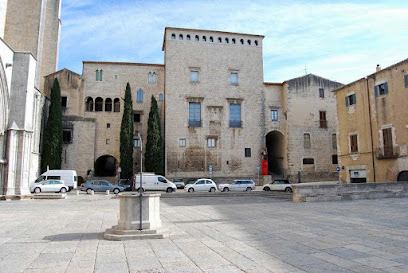
YEAH! Girona
Dive into the vibrant nightlife of Girona at YEAH! Girona, where music, dancing, and unforgettable experiences await you.
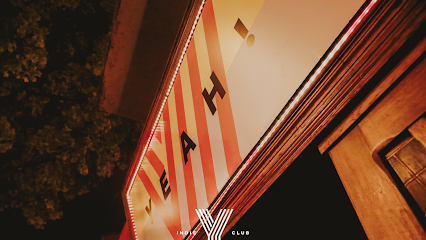
Biblioteca Pública Carles Rahola
Explore Girona's rich literary heritage at Biblioteca Pública Carles Rahola, a cultural haven for book lovers and history enthusiasts.
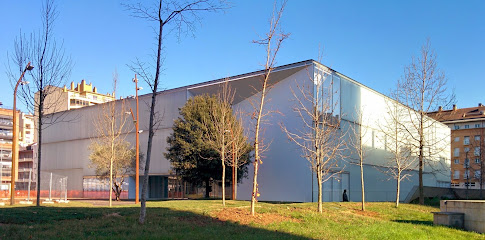
Hotel Historic
Discover the charm and comfort of Hotel Historic, your ideal base for exploring the rich history and vibrant culture of Girona.

Unmissable attractions to see
Dalí Theatre and Museum
Discover the surreal genius of Salvador Dalí at the iconic Dalí Theatre and Museum in Figueres, a must-visit destination for art lovers.
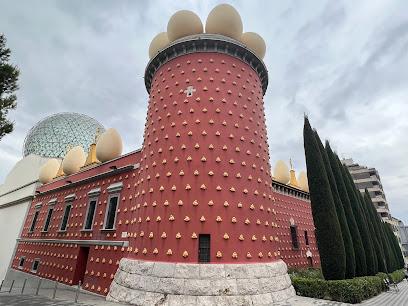
Besalú Bridge
Discover the historic Besalú Bridge, a stunning medieval landmark in Girona that offers breathtaking views and a glimpse into Spain's rich architectural heritage.
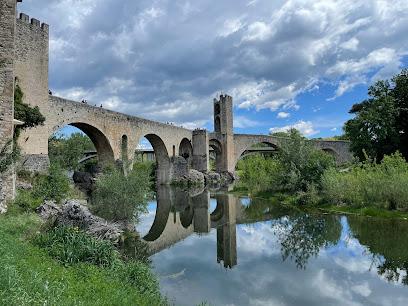
Muralles de Tossa de Mar
Explore the historic Muralles de Tossa de Mar, a medieval fortress offering breathtaking views and a glimpse into Spain's rich cultural heritage.
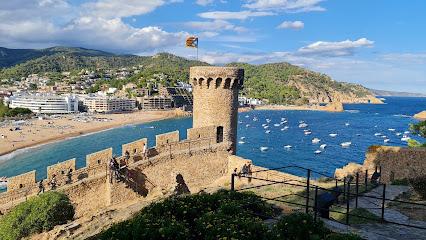
Girona Cathedral
Discover Girona Cathedral, an architectural marvel blending Romanesque and Gothic styles, offering breathtaking views and rich history in Catalonia.
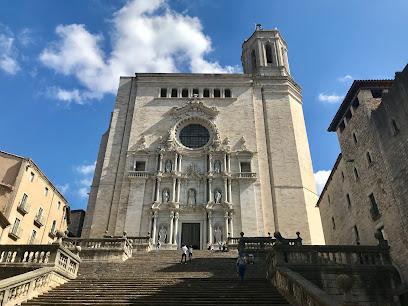
Jardí Botànic Marimurtra
Explore the breathtaking beauty of Jardí Botànic Marimurtra, a serene botanical garden on the Costa Brava, showcasing Mediterranean flora and stunning sea views.
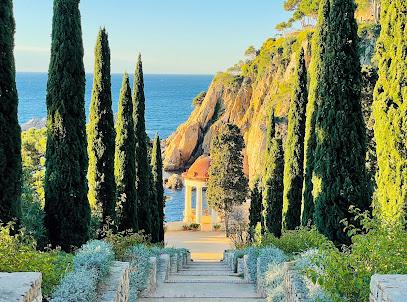
Ruïnes d'Empúries - Museu Arqueològic
Explore the ancient ruins of Empúries at the Museu Arqueològic and immerse yourself in the rich history of Greece and Rome along the Costa Brava.
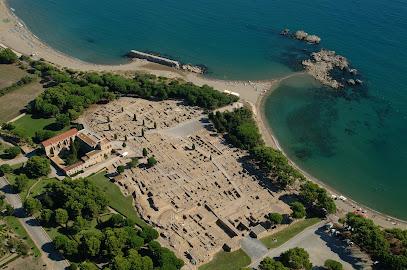
Aiguamolls de l'Empordà
Explore the breathtaking beauty and rich biodiversity of Aiguamolls de l'Empordà, a premier nature preserve in Girona, Spain.
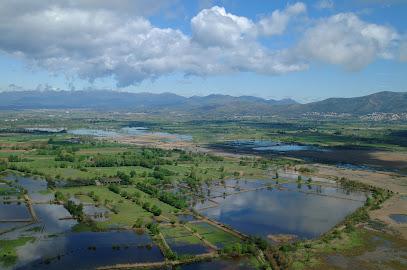
Cala Bona
Discover the enchanting Cala Bona, a breathtaking beach in Blanes, Spain, where golden sands meet turquoise waters for an unforgettable Mediterranean getaway.
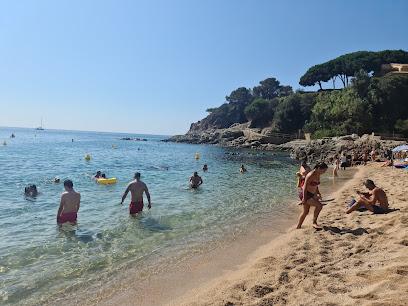
Parc de la Devesa
Discover the natural beauty and tranquility of Parc de la Devesa, a lush urban park in Girona, perfect for relaxation and exploration.
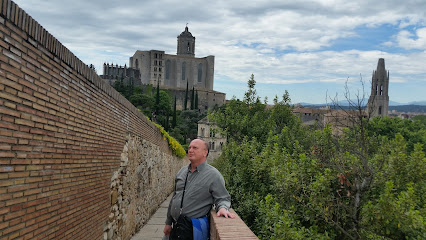
Parc Natural de la Zona Volcànica de la Garrotxa
Explore the stunning volcanic landscapes and rich biodiversity of Parc Natural de la Zona Volcànica de la Garrotxa, a natural preserve in Catalonia, Spain.
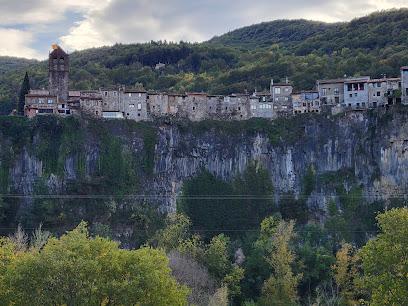
Begur's Castle
Experience the history and stunning views of Begur Castle, a scenic spot in Girona, perfect for tourists seeking adventure and culture.
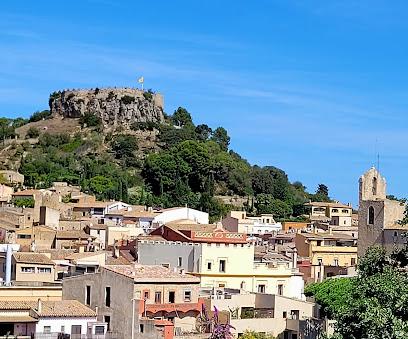
Monastery of Sant Pere de Rodes
Explore the Monastery of Sant Pere de Rodes, a historical gem in El Port de la Selva with breathtaking views and rich Catalonian heritage.
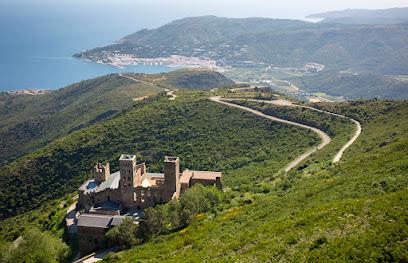
Gala Dalí Castle & Museum
Discover the surreal world of Salvador Dalí at the enchanting Gala Dalí Castle & Museum in Girona, a captivating journey through art and history.
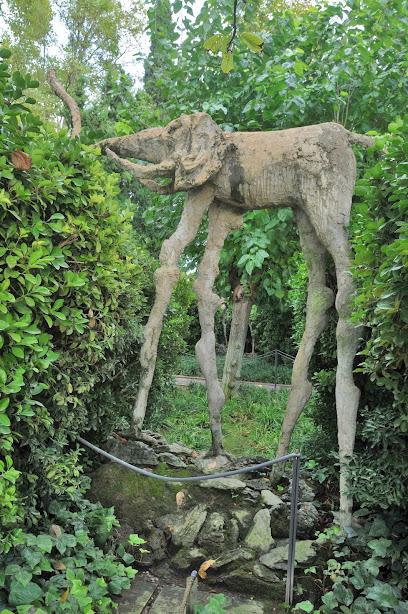
Platja d'Aiguablava
Experience the breathtaking beauty of Platja d'Aiguablava, where crystal-clear waters meet golden sands on the stunning Costa Brava.
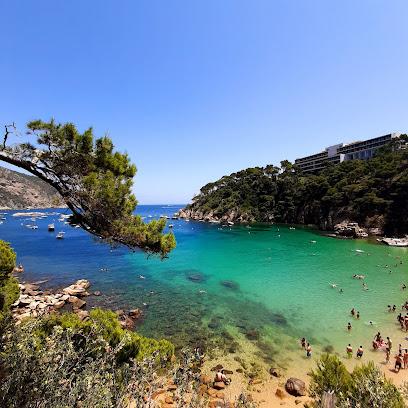
Castell de Sant Ferran
Discover the grandeur of Castell de Sant Ferran, a historic fortress in Figueres, where stunning views and rich Catalan history await every visitor.
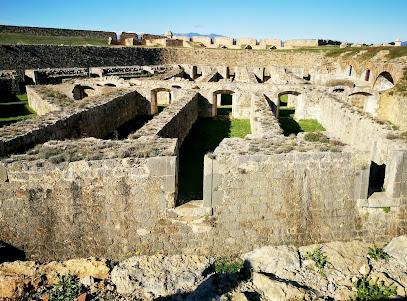
Essential places to dine
Restaurant Cafeteria Pont de Pedra
Discover authentic Catalan flavors at Restaurant Cafeteria Pont de Pedra in Girona - where every meal is a celebration of local cuisine.
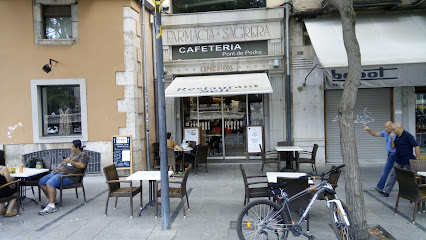
Casa Marieta Restaurant
Experience authentic Catalonian cuisine at Casa Marieta, a family-friendly restaurant in Girona known for its delightful dishes and warm ambiance.
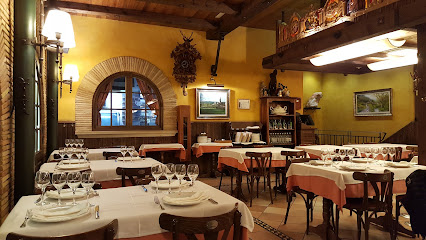
El Celler de Can Roca
Experience culinary artistry at El Celler de Can Roca in Girona - where innovation meets tradition in fine dining.
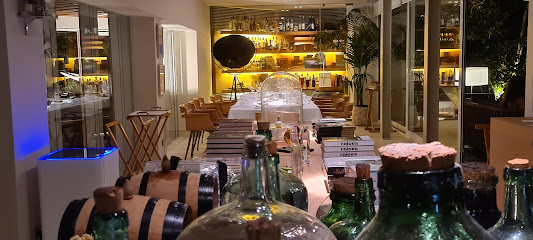
txalaka Girona
Discover the essence of Basque cuisine at Txalaka Girona – where every dish tells a story of tradition and flavor.
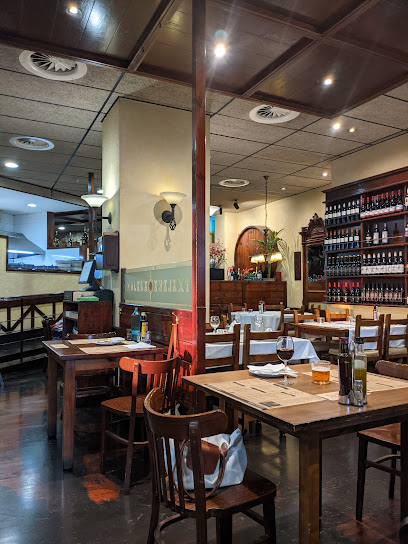
Café le Bistrot
Discover the delightful flavors of Catalonia at Café le Bistrot in Girona – where every meal is a celebration of local cuisine.
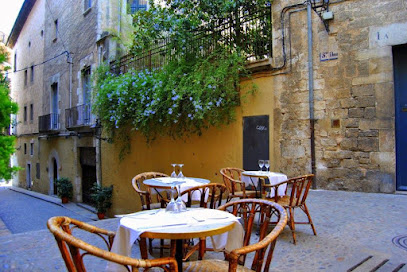
Restaurant La Tagliatella | C/ Ciutadans, Girona
Experience authentic Italian cuisine at La Tagliatella in Girona - where every dish tells a story.
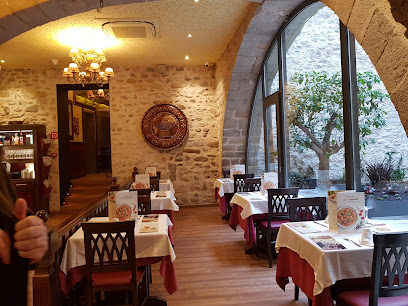
Crêperie Bretonne
Experience authentic French crêpes at Crêperie Bretonne in Girona—where tradition meets taste!
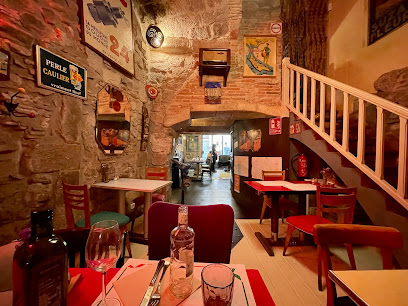
The River Cafè Girona
Experience exquisite grill cuisine by the river at The River Cafè Girona – where taste meets breathtaking views in the heart of Catalonia.
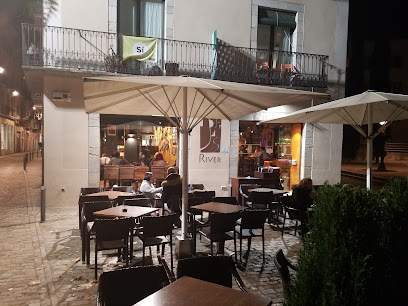
Brots de Vi
Experience authentic Mediterranean cuisine paired with exquisite wines at Brots de Vi in Girona.
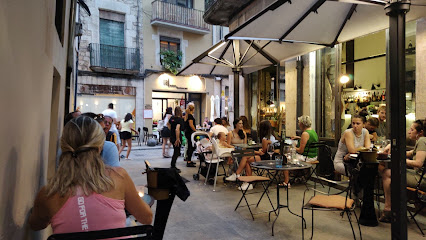
La Vedette
Experience authentic French cuisine at La Vedette in Girona – where exquisite flavors meet charming ambiance.
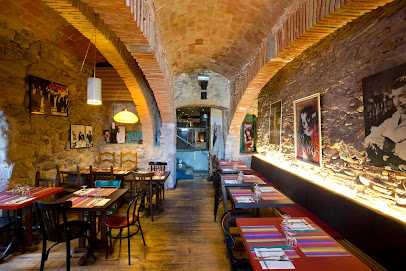
Restaurant El Cul del Món
Experience authentic Mediterranean cuisine at Restaurant El Cul del Món in Girona - where flavor meets tradition in a delightful setting.
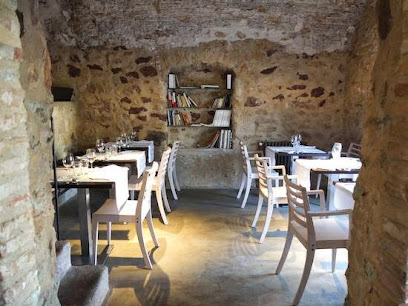
Restaurant L'Alqueria
Discover authentic Mediterranean flavors at Restaurant L'Alqueria in Girona - a culinary haven for traditional Valencian cuisine enthusiasts.
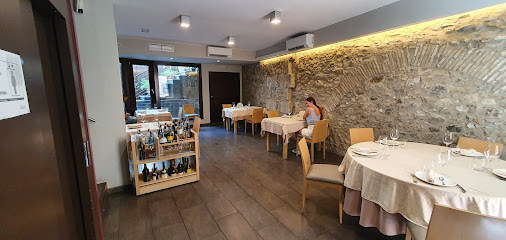
Arròs i Peix Girona
Experience the best of Mediterranean seafood at Arròs i Peix Girona - where tradition meets culinary excellence.
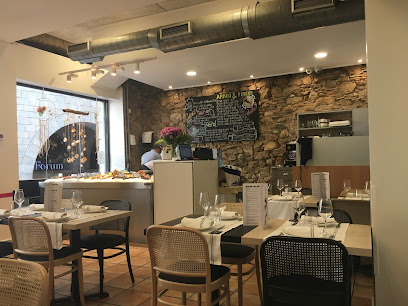
8de7
Experience authentic Catalonian and Mediterranean cuisine at Restaurant 8de7 in Girona – where every dish tells a story.
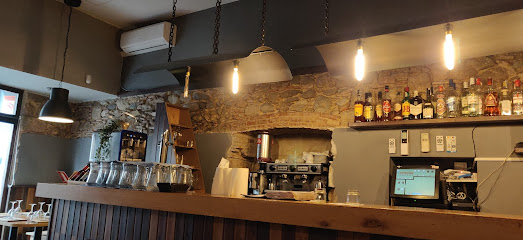
Draps
Discover Draps in Girona: A Mediterranean haven offering fresh local flavors in a charming setting.
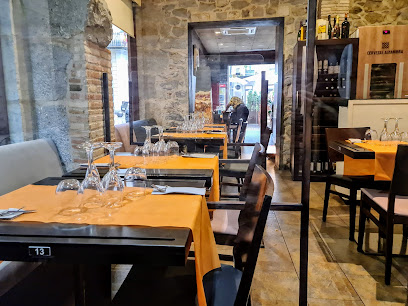
Markets, malls and hidden boutiques
Espai Gironès
Discover the ultimate shopping and dining experience at Espai Gironès, a vibrant shopping mall in Salt, Girona, perfect for tourists and locals alike.
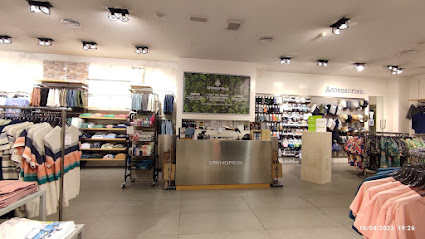
El Corte Inglés Girona
Experience the best shopping in Girona at El Corte Inglés, where local and international brands meet gourmet dining options in a vibrant atmosphere.
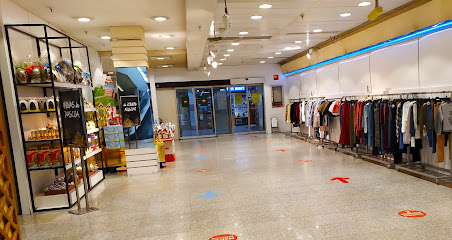
Mercat del Lleó
Experience the flavors of Catalonia at Mercat del Lleó, Girona's vibrant market of fresh produce and local delicacies.
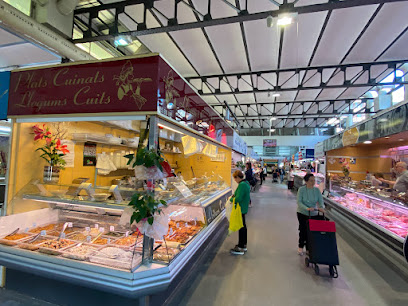
Zara
Explore the latest fashion trends at Zara in Girona, where style meets affordability in a vibrant shopping atmosphere.
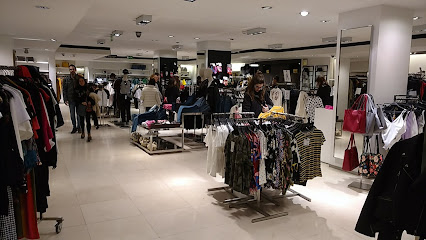
Casa Cacao | Botiga de Xocolata
Discover the chocolate haven in Girona - Casa Cacao, where artisan craftsmanship meets irresistible flavors in every bite.
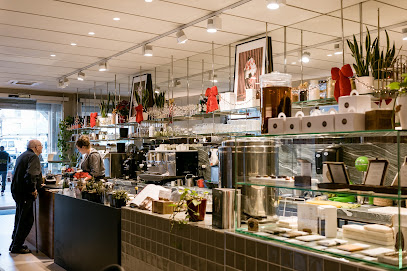
Flying Tiger Copenhagen
Explore the whimsical world of Flying Tiger Copenhagen in Girona, where creativity meets affordability in a vibrant gift shop experience.
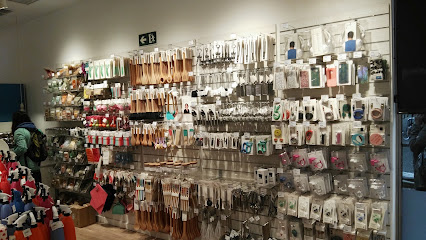
SEPHORA Girona
Discover a world of beauty at SEPHORA Girona, your ultimate destination for cosmetics, skincare, and fragrances in the heart of the city.
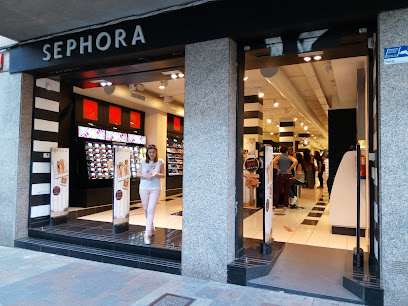
Bershka
Explore the latest fashion trends at Bershka in Girona, where style meets affordability for everyone.
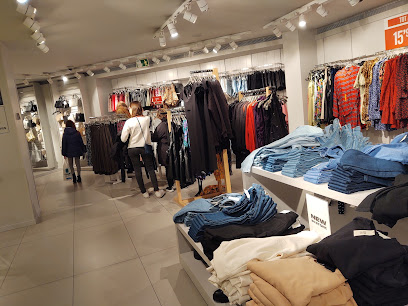
Abacus Cooperativa | Girona Centre
Discover creativity and unique gifts at Abacus Cooperativa, Girona's premier gift and art supply store, perfect for families and art enthusiasts.
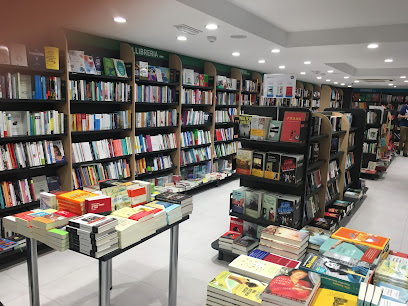
SCARLATTA
Discover SCARLATTA in Girona for exquisite formal wear and haute couture fashion, where style meets sophistication in every detail.
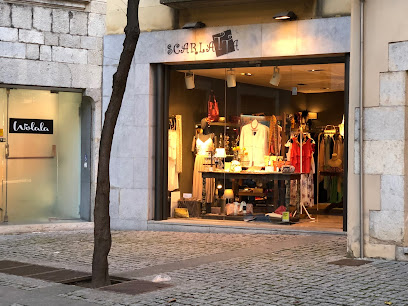
La Carpa
Explore La Carpa in Girona for unique gifts, art supplies, toys, and home goods that capture the essence of creativity and local craftsmanship.
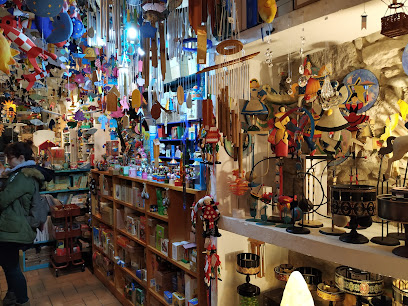
Boutique Nespresso Santa Clara
Experience the finest coffee culture at Boutique Nespresso Santa Clara in Girona, where quality meets sophistication in every cup.
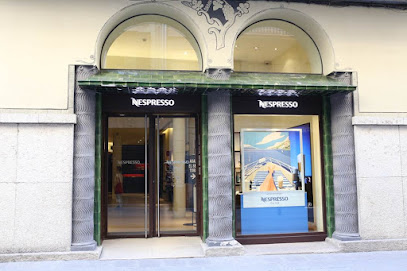
Action Girona
Discover a treasure trove of gifts, home goods, and DIY supplies at Action Girona, the ultimate shopping destination in Girona.
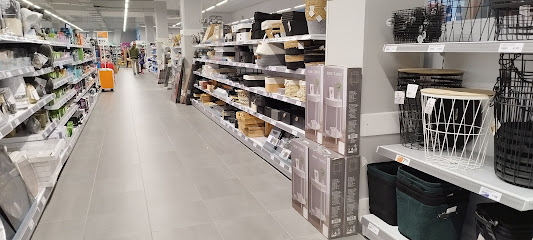
Stradivarius
Explore the latest trends in women's fashion at Stradivarius, a stylish clothing store in the heart of Girona, Spain.
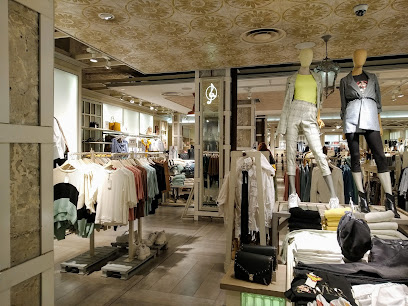
Kabenzots
Explore Kabenzots in Girona for a delightful journey into the world of collectibles and toys, perfect for enthusiasts and families alike.
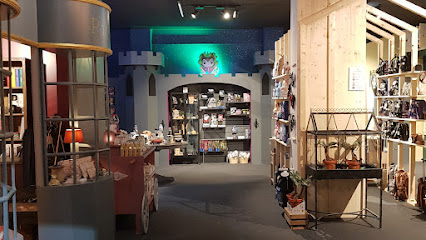
Essential bars & hidden hideouts
The River Cafè Girona
Discover the flavors of Girona at The River Cafè, a vibrant grill restaurant by the river, perfect for a leisurely meal or drinks with friends.
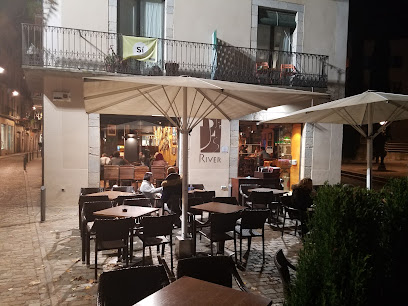
Bar Restaurant La Terra
Discover the vibrant flavors of Girona at Bar Restaurant La Terra, where delicious hamburgers and aromatic espresso await in a cozy atmosphere.
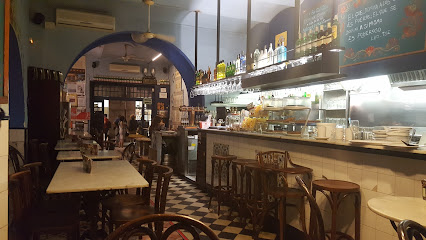
McKiernans
Experience the warmth of Irish hospitality at McKiernans, Girona's favorite pub offering delicious food and a vibrant atmosphere.
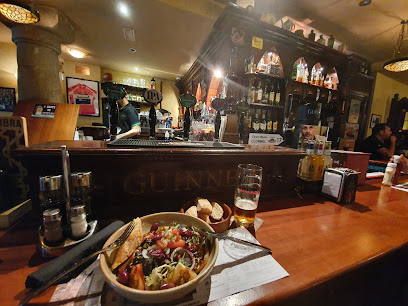
Casino Girona
Experience the vibrant nightlife of Girona at Casino Girona, where cocktails, dancing, and fun await in a stunning setting.
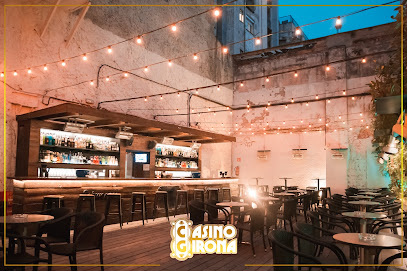
Sunset Jazz Club
Discover the melodic charm of Sunset Jazz Club in Girona, where jazz meets gourmet cheese and refreshing cocktails for an unforgettable night out.
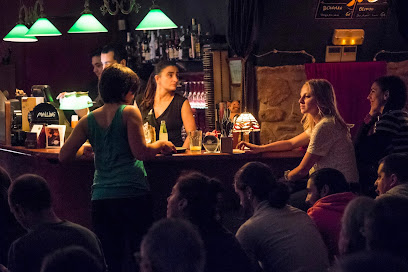
Lola Cafè - Girona
Discover the enchanting vibes of Lola Cafè in Girona, a vibrant piano bar where music meets a lively atmosphere for unforgettable nights.
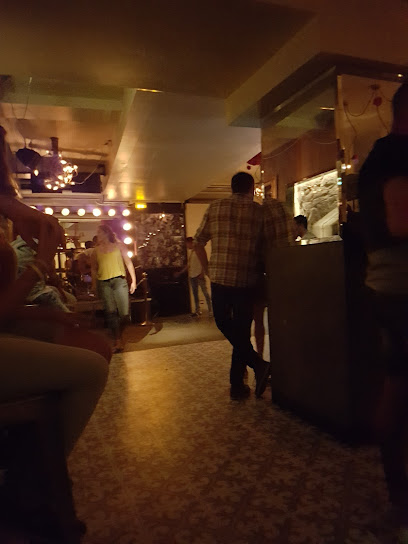
Cu cut
Experience the lively atmosphere and extensive drink selection at Cu cut, a must-visit bar in Girona's nightlife scene.
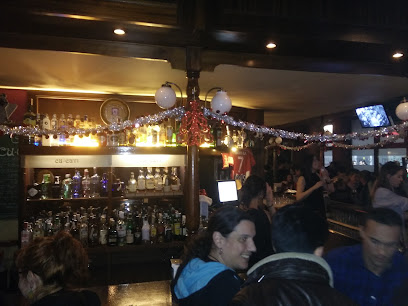
Vermuteria Lola
Experience the authentic taste of Girona at Vermuteria Lola, where local vermouth and tapas come together in a charming bar setting.
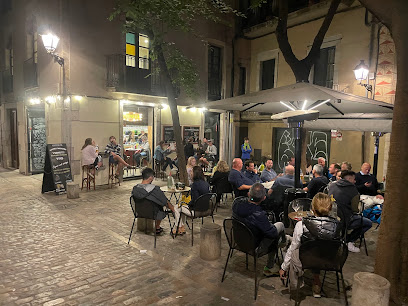
Babilonia
Experience the best of Girona at Babilonia, a brewpub and cocktail bar serving delicious local cuisine and craft beverages in a vibrant setting.
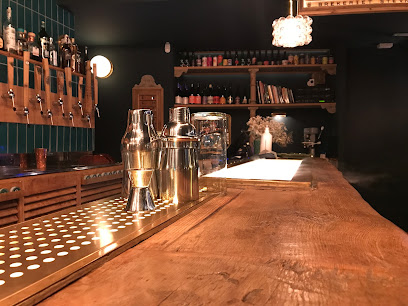
La Garrina Natural Wine Restaurante - Solo el Amor Salvara el Mundo
Explore the exquisite flavors of La Garrina Natural Wine Restaurante in Girona, where gourmet grill dining meets a passion for natural wines.
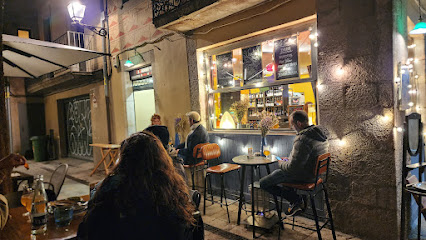
Bagels & Beers
Experience the perfect blend of fresh bagels and craft beers in Girona's vibrant culinary scene at Bagels & Beers.
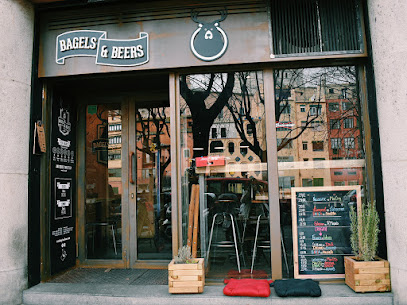
Bar Sant Fèlix
Discover the flavors of Catalonia at Bar Sant Fèlix, a vibrant tapas bar in the heart of Girona, offering delicious dishes and a lively social atmosphere.
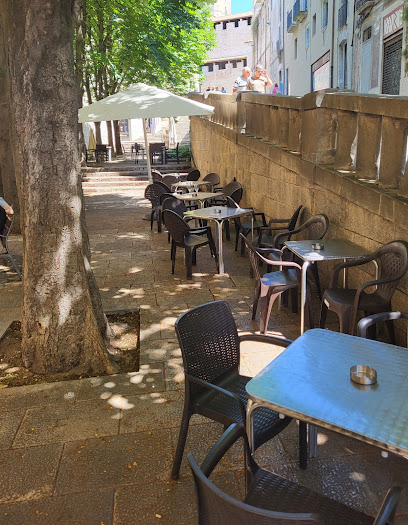
Cua de Gall
Discover Cua de Gall, Girona's vibrant cocktail bar, where innovative drinks and a lively atmosphere create an unforgettable evening experience.
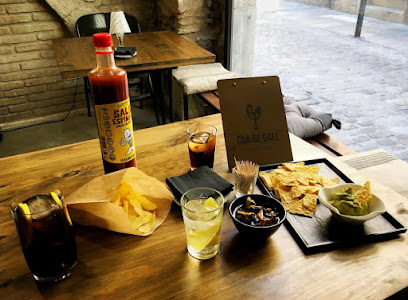
Espit Chupitos Girona
Experience the vibrant nightlife of Girona at Espit Chupitos, a lively pub renowned for its creative shots and energetic atmosphere.
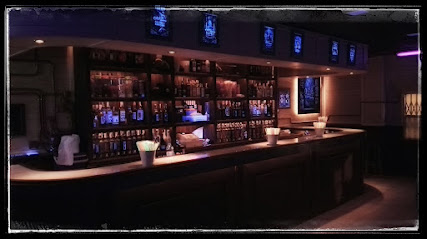
Local Phrases
-
- HelloHola
[oh-lah] - GoodbyeAdéu
[ah-deh-oo] - YesSí
[see] - NoNo
[noh] - Please/You're welcomeSi us plau/De res
[see oos plow/deh res] - Thank youGràcies
[grah-syes] - Excuse me/SorryPerdona/Disculpa
[pehr-doh-nah/dees-kool-pah] - How are you?Com estàs?
[kohm ehs-tahs] - Fine. And you?Bé. I tu?
[beh/ee too] - Do you speak English?Parles anglès?
[pahr-lehs ahn-glehs] - I don't understandNo entenc
[noh ehn-tenk]
- HelloHola
-
- I'd like to see the menu, pleaseM'agradaria veure la carta, si us plau
[mah-grah-dyah veh-oo-reh lah kar-tah, see oos plow] - I don't eat meatJo no menjo carn
[hoh noh mehn-hoh kahrn] - Cheers!Salut!
[sah-loot] - I would like to pay, pleaseVoldria pagar, si us plau
[vohl-dree-ah pah-gahr, see oos plow]
- I'd like to see the menu, pleaseM'agradaria veure la carta, si us plau
-
- Help!Ajuda!
[ah-hoo-dah] - Go away!Vés-te'n!
[veys-tehn] - Call the Police!Truca a la policia!
[troo-kah ah lah poh-lee-see-ah] - Call a doctor!Truca a un metge!
[troo-kah ah oon meht-geh] - I'm lostEstic perdut
[ehs-teek pehr-dooh] - I'm illEstic malalt
[ehs-teek mah-lahlt]
- Help!Ajuda!
-
- I'd like to buy...Voldria comprar...
[vohl-dree-ah kohm-prahr] - I'm just lookingNomés estic mirant
[noh-mehs ehs-teek mee-rahn] - How much is it?Quant val?
[kwahnt vahl] - That's too expensiveAixò és massa car
[ay-shoh ehs mah-sah kahr] - Can you lower the price?Pots baixar el preu?
[pohts by-shahr ehl preh-oo]
- I'd like to buy...Voldria comprar...
-
- What time is it?Quina hora és?
[kee-nah oh-rah ehs] - It's one o'clockÉs la una
[ehs lah oo-nah] - Half past (10)Dos quarts de onze
[dohs kwahrts deh ohn-zeh] - MorningMatí
[mah-teeh] - AfternoonTarda
[tahr-dah] - EveningVespre
[vehs-preh] - YesterdayAhir
[ah-eer] - TodayAvui
[ah-voo-ee] - TomorrowDemà
[deh-mah] - 1Un
[oon] - 2Dos
[dohs] - 3Tres
[trehs] - 4Quatre
[kwah-treh] - 5Cinc
[seenk] - 6Sis
[sees] - 7Set
[set] - 8Vuit
[bwit] - 9Nou
[noh] - 10Deu
[deh-oo]
- What time is it?Quina hora és?
-
- Where's a/the...?On és un/el...?
[ohn ehs oon/ehl] - What's the address?Quina és l'adreça?
[kee-nah ehs lad-reh-sah] - Can you show me (on the map)?Em pots ensenyar (al mapa)?
[ehm pohts ehn-sehn-yahr (ahl mah-pah)] - When's the next (bus)?Quan és el proper (autobús)?
[kwahn ehs ehl proh-pehr (ow-toh-boos)] - A ticket (to ....)Un bitllet (a ...)
[oon bee-tlyet (ah)]
- Where's a/the...?On és un/el...?
History of Girona
-
Girona, known as Gerunda in Roman times, was established around the 1st century BC. The Romans built the city as a fortified settlement to protect the Via Augusta, an important road connecting Rome to Cadiz. Remnants of the Roman walls can still be seen in the Força Vella, the ancient nucleus of Girona.
-
During the Middle Ages, Girona flourished as a significant commercial and political hub. The construction of the Cathedral of Saint Mary of Girona began in the 11th century and showcases a blend of Romanesque and Gothic architectural styles. The Jewish Quarter, or El Call, was one of the most important in medieval Europe, reflecting the city's diverse and thriving community.
-
One of the most dramatic episodes in Girona's history was the Siege of 1809 during the Peninsular War. French forces attempted to capture the city, but the residents, led by General Álvarez de Castro, showed remarkable resilience. Despite eventually succumbing after seven months, the siege turned Girona into a symbol of resistance and heroism in Catalan history.
-
The 19th century brought industrialization to Girona, transforming it into a center for textile production. The arrival of the railway in 1862 further boosted economic growth and connected Girona more closely with the rest of Spain. This era also saw urban expansion beyond the ancient walls, blending historical and modern elements.
-
The Spanish Civil War (1936-1939) left a profound impact on Girona. The city experienced bombings and significant destruction. Under Franco's dictatorship, many Catalan cultural expressions were suppressed. However, Girona's spirit persisted, and it became a focal point for Catalan identity and resistance.
-
In recent decades, Girona has experienced a cultural and economic renaissance. The restoration of historical monuments, coupled with a burgeoning tourism industry, has revitalized the city. Girona's role as a filming location for popular TV series like 'Game of Thrones' has also brought international attention, showcasing its rich heritage and picturesque landscapes.
Girona Essentials
-
Girona is well-connected and can be accessed via various modes of transportation. The nearest international airport is Girona-Costa Brava Airport, located about 12 kilometers from the city center. Alternatively, Barcelona-El Prat Airport is approximately 100 kilometers away and offers a wider range of international flights. From both airports, you can take a taxi, bus, or rent a car to reach Girona. Additionally, Girona is a major stop on the high-speed AVE train network, with direct connections to Barcelona, Madrid, and other major Spanish cities. Regular bus services also operate between Girona and various Spanish cities and towns.
-
Girona has a well-organized public transportation system that includes buses and taxis. The local bus network covers the city and its surroundings, making it easy to get around. Taxis are readily available and can be hailed on the street or booked in advance. Renting a bicycle is also a popular option, as Girona is a bike-friendly city with numerous cycling lanes and routes. For those looking to explore beyond the city, renting a car offers the flexibility to visit nearby attractions at your own pace.
-
The currency used in Girona is the Euro (EUR). Credit and debit cards are widely accepted in most hotels, restaurants, and shops. ATMs are abundant throughout the city, allowing you to withdraw cash as needed. However, it is advisable to carry some cash, especially when visiting smaller establishments or local markets where card payments may not be accepted.
-
Girona is generally a safe city for tourists. However, it is always wise to take standard precautions. Be mindful of pickpockets, especially in crowded places like the train station and popular tourist spots. Avoid walking alone in poorly lit areas at night. The Old Town and the Jewish Quarter are safe to visit, but it is advisable to stay vigilant. There are no specific high-crime areas targeting tourists, but always be aware of your surroundings.
-
In case of emergency, dial 112 for immediate assistance. This is the general emergency number for police, fire, and medical services in Spain. Girona has several hospitals and medical facilities that can provide urgent care. It is recommended to have travel insurance that covers medical emergencies. For minor health issues, pharmacies are widely available, and many staff members speak English.
-
Fashion: Do wear comfortable clothing and footwear, especially if you plan to explore the historic Old Town with its cobblestone streets. Avoid overly casual attire when dining at upscale restaurants. Religion: Do respect local customs, especially when visiting religious sites. Cover your shoulders and knees when entering churches. Public Transport: Do validate your ticket when using public transport. Don’t eat or drink on buses. Greetings: Do greet people with a friendly 'Hola' or 'Bon dia' (in Catalan). A handshake is common in formal settings. Eating & Drinking: Do try local dishes and tapas. Don’t rush your meal; dining in Girona is a leisurely affair.
-
To experience Girona like a local, visit the Mercat del Lleo market, where you can buy fresh produce and sample local delicacies. Take a stroll along the Onyar River to admire the colorful facades of the houses. Engage with locals; they are friendly and often willing to share tips about hidden gems in the city. Don’t miss the Girona Flower Festival in May, when the city is adorned with stunning floral displays. For a unique experience, explore the medieval city walls for panoramic views of Girona.
Trending Landmark in Girona
-
Girona Cathedral
-
Parc de la Devesa
-
Pont de les Peixateries Velles
-
Muralles de Girona
-
Mercat del Lleó
-
Banys Àrabs
-
Fira de Girona
-
Basílica de Sant Feliu
-
Sant Pere de Galligants
-
Tourist Information Office
-
Cases de l'Onyar
-
Museu d'Art de Girona
-
YEAH! Girona
-
Biblioteca Pública Carles Rahola
-
Hotel Historic
Nearby Cities to Girona
-
Things To Do in Barcelona
-
Things To Do in Pas de la Casa
-
Things To Do in Soldeu
-
Things To Do in Encamp
-
Things To Do in Canillo
-
Things To Do in Escaldes-Engordany
-
Things To Do in Andorra la Vella
-
Things To Do in La Massana
-
Things To Do in Ordino
-
Things To Do in El Serrat
-
Things To Do in Arinsal
-
Things To Do in Tarragona
-
Things To Do in Lleida
-
Things To Do in Montpellier
-
Things To Do in Toulouse
















